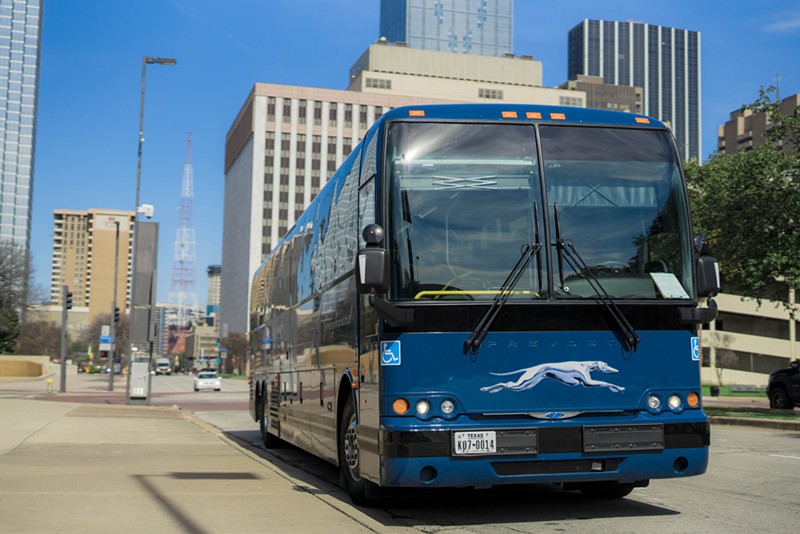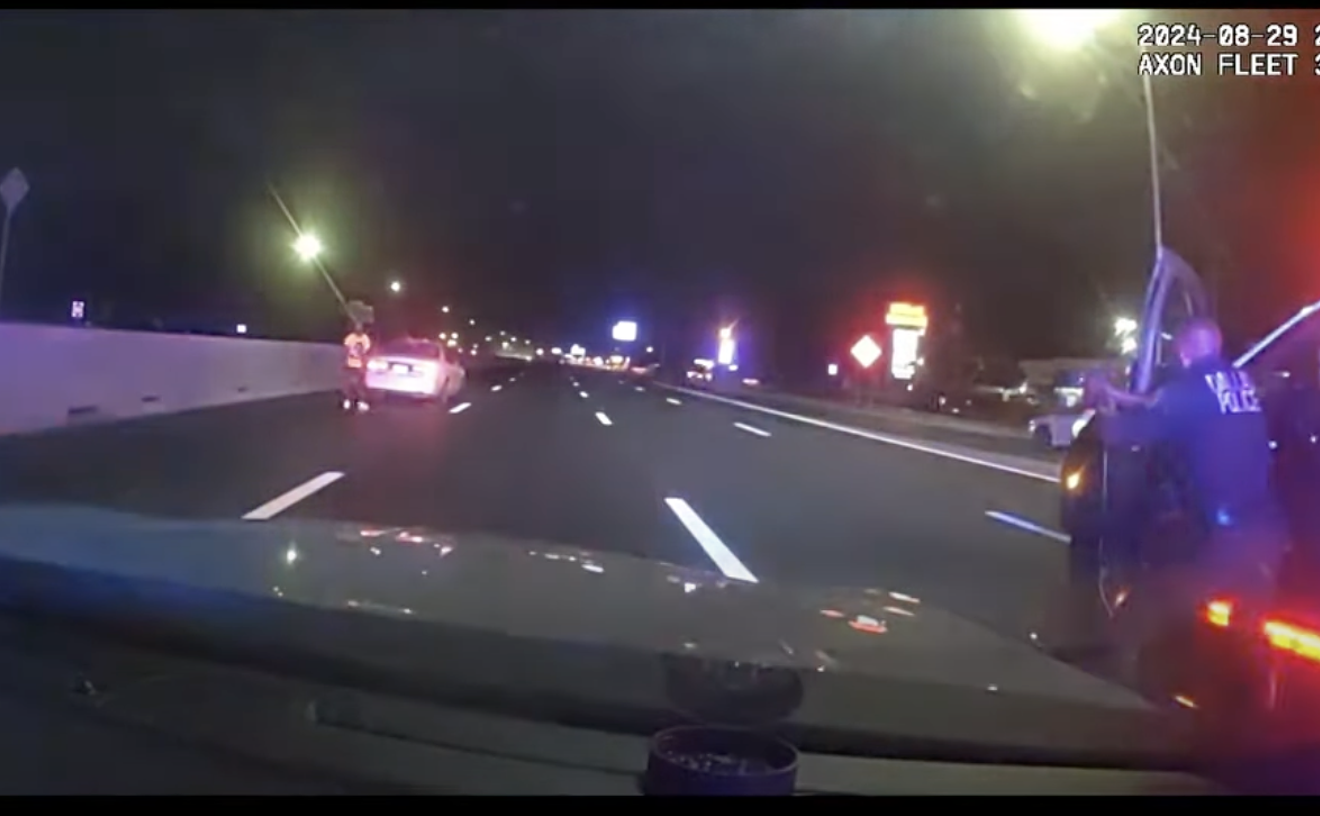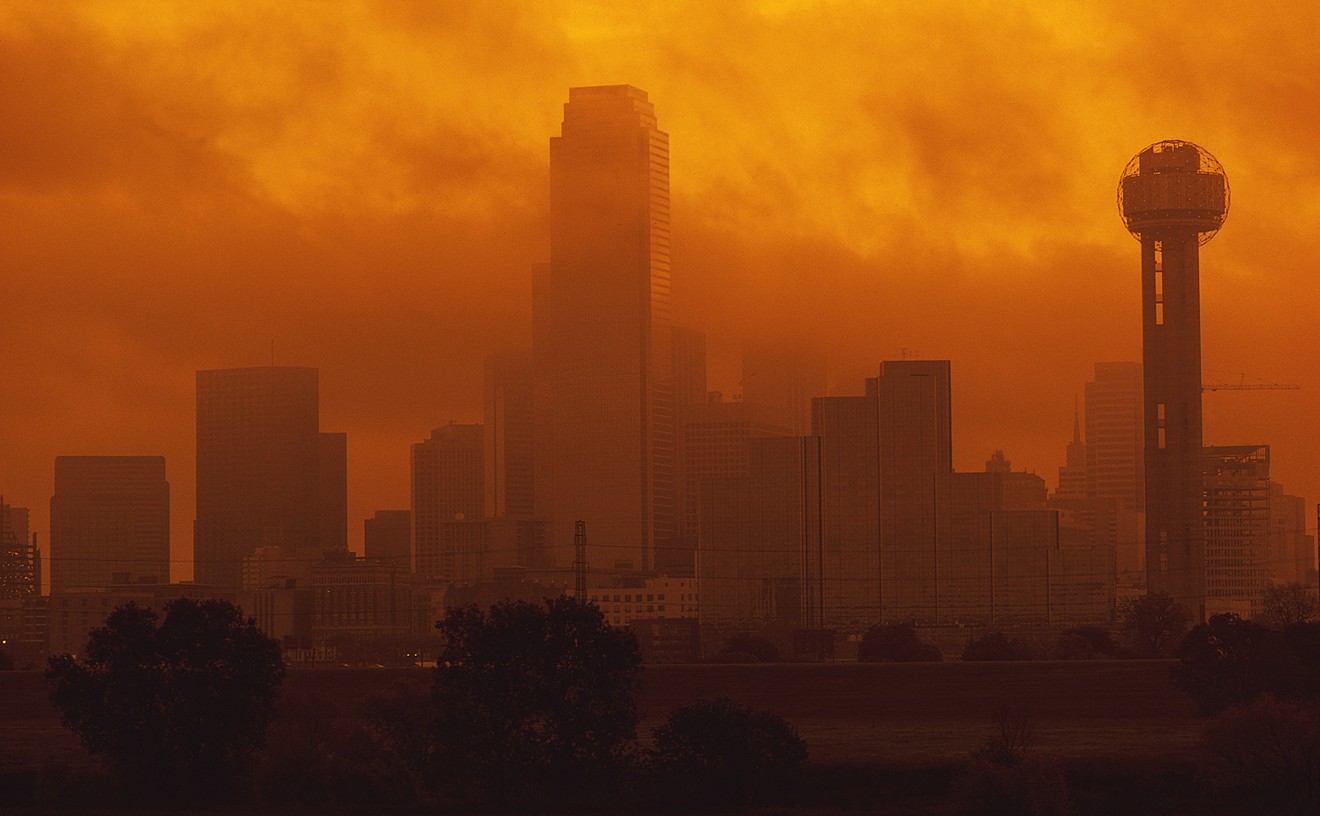The East Dallas resident has been a fierce advocate for city planning that promotes walkability and biking. He is a lover of public transportation, serving on the DART citizens advisory committee. And, about once a quarter when he is looking to get out of town, he turns to intercity buses to get where he wants to go. Car-free journeys, he says, make him feel like he’s "living in a Simon and Garfunkel song."
Starting this fall, though, his service options on intercity buses could be half of what they were a year ago.
Ongoing plans to shutter the Downtown Dallas Greyhound station in October, coupled with Megabus’ abrupt removal from the Texas market, signal that the days of hitching a double-decker ride to Houston, Austin or San Antonio for a few bucks may have come to an end. Megabus pulled out of its Texas routes on Aug. 16, just days after its parent company, Coach USA, received permission to sell some of its assets when it filed for Chapter 11 bankruptcy. A spokesperson for Megabus told the Observer that pulling out of Texas was a “difficult business decision.”
Meanwhile, travelers who turn to Greyhound’s conveniently placed downtown station are still waiting to hear what their future travel will look like. (The German transit company FlixMobility acquired Greyhound in 2021.) In January, the company announced that its lease, which expires in October, was not renewed after 45 years in the location.
“I think it's concerning if losing one provider means we have less service overall. Because one of the advantages of living in an area with multiple companies is thinking of the combined headway [they offer],” Colorado told the Observer. “But my hope would be that it boosts the service [options] on one of the other providers.”
Dallas travelers do still have several options for intercity bus travel, although the seats are pricier than what was offered by Megabus. A one-way trip to Houston on a FlixBus runs in the $25–50 range, but a seat on Vonlane costs $125 and comes with a meal and a hostess. RedCoach buses have prices similar to those offered by FlixBus, and make stops at DFW Airport and UT Dallas.
Dallas’ Bus Industry Has a Flat Tire
An annual study on the intercity bus industry published in February by Joseph Schwieterman, director of the Chaddick Institute for Metropolitan Development at DePaul University, found that in 2023, national passenger traffic rose to nearly pre-pandemic levels. But while Schwieterman applauded Texas’ luxury bus offerings, the uncertainty surrounding the downtown Dallas Greyhound station is problematic.The closure of Dallas downtown station will follow the trend of closures seen last year nationwide. Bus terminals in Houston, Knoxville, Philadelphia, Cincinnati, Columbus, Tampa and Louisville all shuttered in 2023, and “in most cases, municipal governments did little, and in some instances were openly hostile, to efforts to find a new location,” the report says.
“When FlixMobility purchased the Greyhound bus operation in 2021, it did not acquire some privately owned stations. Many stations were later sold by the company that previously owned Greyhound,” Schwieterman’s report states. “During this same period, ‘not in my backyard’ opposition to bus stations grew.”
A stigma surrounding the downtown Dallas Greyhound station is nothing new.
The Dallas Morning News reports that the downtown bus station was deemed a “habitual criminal property” by the city in April 2023, forcing the facility's owners to pay an annual fee and implement crime control measures. Records show that Greyhound challenged the decision, but the appeal was later dropped.
Schwieterman’s report also states that “heavy traffic originating along the U.S./Mexico border” has helped “sustain” the demand for Texas bus services. Nationally, buses are typically seen as an option exclusively for low-income individuals, contributing to the stigma surrounding the industry.
"In a lot of cases, I've got to blame local governments who kind of treat the intercity industry as third-class citizens," Peter Pantuso, president of the American Bus Association, told NPR earlier this year.
The Observer asked the city if any studies have been conducted to determine the financial impact of Greyhound pulling out of downtown, or whether city officials know how many riders will be affected by the change, but the city declined to comment. A spokesperson for Greyhound was unable to say what the company's future operation plans in Dallas will be. The Greyhound booking website currently allows individuals to book a ticket out of the downtown station after October’s expected closure.
“I assumed that Greyhound would just find some other facility, maybe Union Station. That's what I hope happens, because then that becomes making lemonade out of lemons,” Colorado said. “I would be disappointed, I'd be very sad if they stopped running service.”
Paving the Possible Road for a Comeback
In his report, Schweiterman predicts that the growing emphasis on environmentally friendly travel will open up a new wave of ridership for intercity buses. He also believes that public policies towards the intercity bus industry will gradually shift in the favor of buses, although whether that shift will happen in time to amp up Dallas’ offerings is unclear.A partnership between a local transportation entity and an intercity bus company wouldn’t be new to Dallas. Before COVID-19, Dallas Area Rapid Transit licensed the use of two bus bays in the CBD East transfer facility to Megabus. Colorado is “puzzled” why a similar agreement hasn’t been reinstated since the pandemic.
“DART has the available bus space at their transfer centers, CBD West, CBD East, Union Station,” Colorado said. “I think it would be a boon for both systems. You have people coming from other cities, they could use the DART. … It feels like such a home run solution that I do wonder if there's some bigger roadblocks that I'm missing there.”
Megabus seems to be gone for good — the Observer was told via statement that the company will let us know "if anything changes" — but a spokesperson for DART told us that the group has been in talks with Greyhound to try to keep the bus company in Dallas.
“There has been some discussions between our organizations about creating a similar agreement,” the spokesperson said. “It worked out well with Megabus, so that is an open and active conversation on our end.”













